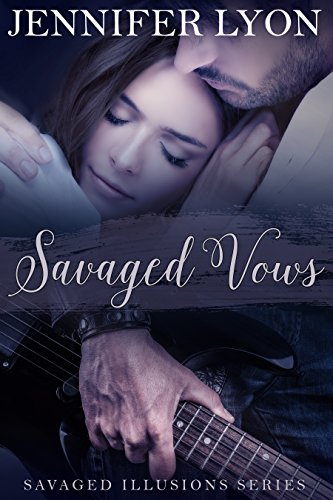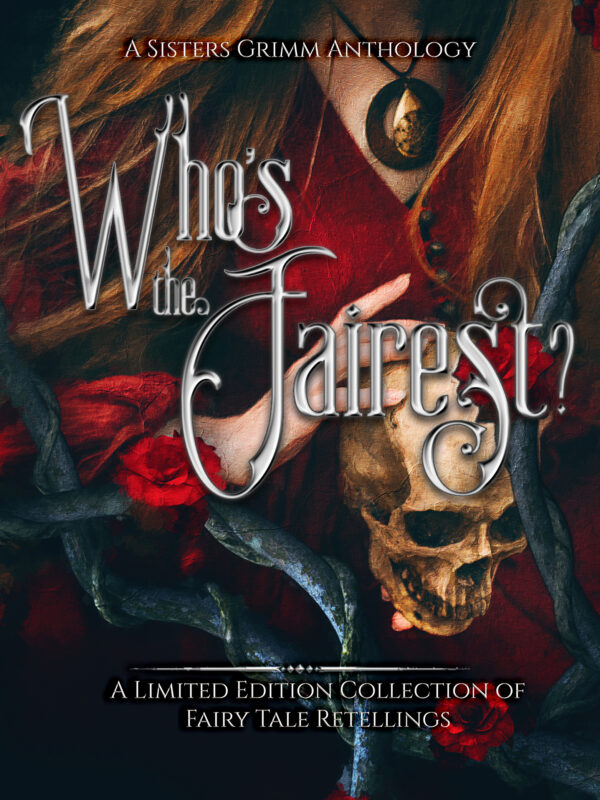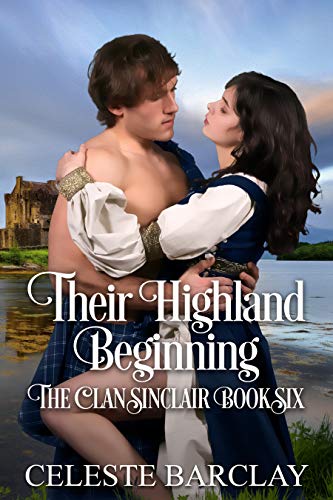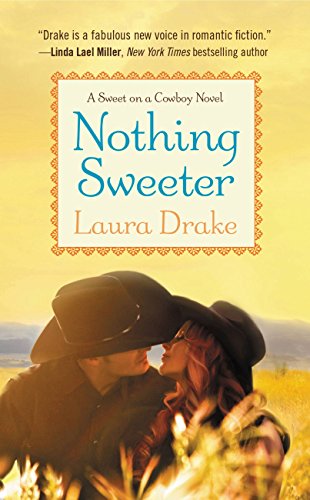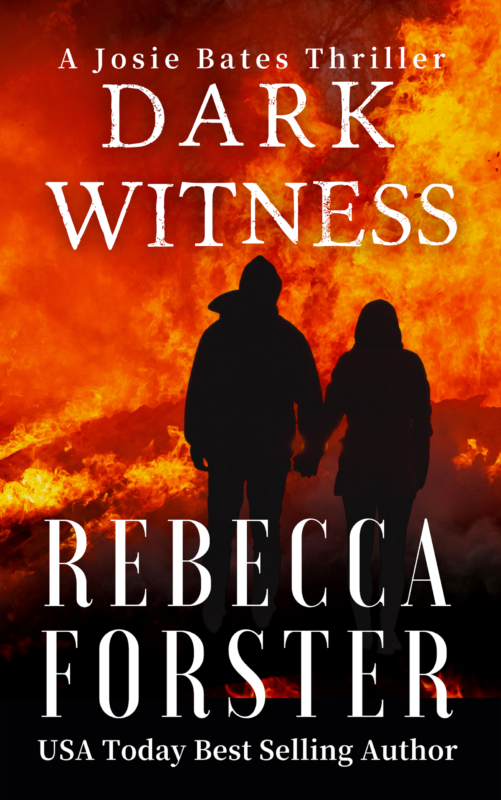The Extra Squeeze Team: February Featured Author
February 7, 2021 by The Extra Squeeze in category Featured Author of the Month, The Extra Squeeze by The Extra Squeeze Team tagged as February Featured Authors, HO Charles, Jenny Jensen, Newbie Publishing Questions, Pen Names, Rebecca Forster, Robin Blakely, The Extra Squeeze Team
Each week in February we’ll be featuring The Extra Squeeze Team.
Ever wonder what industry professionals think about the issues that can really impact our careers? Each month The Extra Squeeze features a fresh topic related to books and publishing.
Amazon mover and shaker Rebecca Forster and her handpicked team of book professionals offer frank responses from the POV of each of their specialties — Writing, Editing, PR/Biz Development, and Cover Design.
Have you a question for The Extra Squeeze Team? Send them to us by using this handy link.

Dear Extra Squeeze Team: Do I HAVE to Keep Writing in the Same Genre?

Rebecca Forster
USA Today Bestselling author of 35 books, including the Witness series and the new Finn O’Brien series.
Switching genres is not a black and white issue but a function of the writer’s objective.
Writers by nature are a curious, opinionated and creative bunch. That means there is a tendency to write about whatever inspired them. Sadly this impulsive creativity wars with, and can undermine, the business of being creative.
So, if you are a writer whose primary concern is to explore all levels of your craft, writing in many different genres will be fulfilling. But if your primary concern were to use your writing to build a creative business, it would be wise to stick to one genre. Here is why:
1) Concentrating on one genre creates a dedicated fan base.
2) One genre allows the author to create a cohesive personal brand
3) Readers will know where to find you on the bookshelf whether it is in a brick and mortar or a digital bookstore.
4) Writers usually excel in one genre. To write in a completely different genre that is not as strong as your primary one only serves to dilute your brand.
This is not to say you can’t have diversity in your writing career. If you’re a thriller writer, it can take months to craft a 100,000-word novel. Writing shorter genre romantic suspense might satisfy your desire to write in a separate genre, allow you to bring out more books each year, and your output will still appeal to your fan base while growing a cross-over fan base in romantic suspense. Do you write fantasy? Then try magical realism. Do you write romance? Cross over to women’s fiction or sagas. Just remember to make your secondary market tangential to your primary.
New writers may want to try on different genres for size to find out where their strengths lie. Established authors who want to try a completely different genre may want to consider a pseudonym. Either way, the first thing to do is decide what your career objective is and then make a genre plan to meet it.
[tweetshare tweet=”Dear Extra Squeeze Team: Do I HAVE to keep writing in the same genre?” username=”@A_SliceofOrange”]

Jenny Jensen
Developmental editor who has worked for twenty plus years with new and established authors of both fiction and non-fiction, traditional and indie.
No, of course not. You can write in any genre you desire. The outcome of that would depend on how much weight you place on each side of art vs business of writing equation.
If you weigh in about equal between writing as your expressive art and the business of making that art pay (either recognition or income) you’re well aware of the importance of branding your work for a particular audience. You know the effort involved in creating an online author presence, beginning with a body of solid work, which is publicized and supported by blogs, reviews, interviews, twitter, newsletters, Face Book etc. It takes time and consistent work to build an author platform and a fan base. Your fans find you and stick with you because they want to read the genre you’re writing in, they expect to read that genre and because you are good enough at that genre to either be building, or have built, a solid following.
Traditional publishers shy away from letting an author branch out into a different genre. They don’t want to upset an established cash cow. In that respect the traditional marketing model is similar to the Indie model. Poor A. A. Milne — he really wanted to write murder mysteries (he published one: The Red House Mystery) but his publisher would never let him taint the image of Christopher and friends. There are major exceptions; J. K. Rowling and Anne Rice are two. Both of these fabulous authors had a huge, loyal fan base before they made the genre jump. When you write that well most of us will follow blindly! I know I do and I’ve not been disappointed.
If you know you have great stories in you that cross genre typing you can always publish one genre under a nom de plume. That’s very common. Eventually a well-known writer gets outed as the person behind the false moniker but by that time she’s hooked a whole new audience so everyone is happy.
Writing in different genres is, I think, an excellent way to exercise and grow your writing skills. Just the difference in voice between the lady of an Edwardian romance and the female warrior of a dungeons and dragons fantasy would require a major stretch of skills. Add plot mechanics, atmosphere and secondary characters and you’re running a writing marathon. That’s the kind of practice that really sharpens a writer’s eye. I’d never discourage that.
The important thing to remember if you want to successfully write in more than one genre is to be sure you can excel in one of them first.
Robin Blakely
PR/Business Development coach for writers and artists; CEO, Creative Center of America; member, Forbes Coaches Council.
No, you don’t have to keep writing in the same genre. But, why would you leave?
Over the years, authors have privately shared many reasons for making big shifts in their writing careers.
- Sometimes you start out in the wrong place, and your efforts just aren’t working.
- Sometimes you change so much as you grow professionally that your story interests carry you to a new genre.
- Sometimes the original genre changes and you no longer feel at home creating the types of stories you once enjoyed.
As a writer, you are a talent-driven brand, and talent-driven brands are fueled by passion. So, it always makes sense to follow your passion. However, passion can sometimes be mistaken for a whim. So, think hard about the shift you are contemplating. Prepare for what could be ahead.
From a PR, Marketing, and Sales perspective think about desired outcomes before you decide to leave your readers and move.
- Consider the risks and the benefits to the business side of your creativity.
- Take a critical look at what you are building—there is more than your written work at stake.
- In addition to the books you are creating, you are also steadily building a community of readers. Jumping ship to another genre will be like moving from your beloved neighborhood to a new community. The readers you got to know over here may not go with you over there when you leave. They may like you enough to come visit, but it is likely that they won’t come by often.
PR-wise, you are starting over when you begin to write in a new genre. Even if you keep writing for your original genre, you will still be starting over reader-wise with your new work. Still, just like in the real world with an apartment or a starter home, a simple move can be just what you needed to live happily ever after.
H.O. Charles
Cover designer and author of the fantasy series, The Fireblade Array
When you find out, please let me know because I am about to publish a(n) historical fiction novel (after years of writing in fantasy!).
There’s no reason why an author wouldn’t have the *ability* to write in another genre, as long as the enthusiasm and skill for it is there. The main thing that I’d be concerned about is audience. The audience you build up whilst writing for one genre may not enjoy your new genre, and it may be that only die-hard fans will want to make the crossing, so to speak. And if they did, the resulting reviews and sales could go either way. Essentially you’d be back at square 1, or perhaps square 1.43, in building a readership for your books.
I wonder if JK Rowling’s endeavour with crime fiction (Robert Galbraith) might serve as a useful source of information. The books were released under a different pseudonym (just as Nora Roberts’ publisher insisted), although this was at JK’s behest since she wanted to “go back to the beginning of a writing career in this new genre, to work without hype or expectation and to receive totally unvarnished feedback.”
On one hand, she received positive reviews as a ‘debut author’, but only sold 1,500 copies in the three months before her true identity was revealed (I say only – that’s not bad going for many authors out there!).
When it was revealed that Galbraith was Rowling, sales shot through the roof, but still only half as many people have written reviews for those books as have done so for the Potter series. From that, I would suggest that if your performance in your first genre is good, then it can only help build a readership for your new genre, but don’t expect sales to match those of your first genre. However, if your foray into your new genre is flawed for any reason, I suppose *potentially* it could negatively affect your existing reputation.
Without having published my non-fantasy book yet, I say go for it. It’s a great way to learn and explore new techniques, approaches, worlds and really grow as an author. I’m really enjoying doing something different.

Ever wonder what industry professionals think about the issues that can really impact our careers? Each month The Extra Squeeze features a fresh topic related to books and publishing.
Amazon mover and shaker Rebecca Forster and her handpicked team of book professionals offer frank responses from the POV of each of their specialties — Writing, Editing, PR/Biz Development, and Cover Design.
Do I Need a Pseudonym to Write Fiction?
February 28, 2019 by The Extra Squeeze in category The Extra Squeeze by The Extra Squeeze Team, Writing tagged as author branding, Pen Names, Pseudonym, The Extra Squeeze Team
Dear Extra Squeeze Team
Do I need a pseudonym to write fiction?

USA Today Bestselling author of 35 books, including the Witness series and the new Finn O’Brien series.
No, you don’t need a pseudonym to write fiction unless you write hard core erotica and you don’t want your mom to know. I used a pseudonym twice in my 30 year career. The first time I was writing for Harlequin and they contractually owned an author’s name. That meant if I wanted to write for anyone else I would have to leave the name–and any consumer base that had accrued to that name–behind. The second time was when I wrote my first legal thriller. The men were big back then–Grisham, Turow–and the publisher wanted readers to assume I was a man. I went by my last name but initials for my first. There was no ‘about the author’ in those books and the whole thing felt very odd. In this day and age when building a brand is your sole responsibility, own your name and build a loyal readership around it.

Developmental editor who has worked for twenty plus years with new and established authors of both fiction and non-fiction, traditional and indie.
Traditionally, publishing under an assumed name was a useful tactic when a writer crossed genres. A non-fiction author whose brand is based on expertise in hunting edible fungi would want to use a pseudonym to publish a steamy romance. A fresh identity to woo a new readership avoids any confusion, possibly even irritation from those readers whose expectations would not be met. A reader who gets a lusty countess when they’re expecting a description of the spotted Nigerian toadstool will not be a repeat reader.
Fiction writers often use pseudonyms to switch between fiction genres. Robert Galbraith jumps (beautifully, I might add) between wizards and detective fiction. Harry Potter fans are diehards so it was wise for J.K. Rowling to present her new detective fiction under a pseudonym. Otherwise fans might have cast a withering spell when their expectations were squashed. Cormoran Strike solving crime was a big step off brand from Harry Potter.
It wasn’t long before the public learned that Galbraith was J.K. Rowling—with a brand that strong anything she writes would be impossible to hide, and why hide it. With her pseudonym public knowledge readers knew what to expect. Rowling’s brand remains intact and Galbraith’s work took off with a new readership. Impossible to say how many of those new readers were enticed simply by the author’s name, but the work stands solidly on it’s own merits now.
Your brand may not be as mighty as Rowling’s but it is as important to your success. No reason not to use a pseudonym to publish your fiction and no reason not to be completely open about it. Supplement the marketing of the fiction by using your existing fan base and marketing tools to launch this new facet of your career. Share the pseudonym on your twitter feed, tout the cover on your pinterest posts, introduce the new personae and the new fiction on your blog. If both your established name and your nom de plume are connected to your brand then fans can seek out whichever genre fits their reading expectations. And your brand is strengthened.

PR/Business Development coach for writers and artists; CEO, Creative Center of America; member, Forbes Coaches Council.
From a branding perspective, maybe you do need a pen name to write fiction. Here are some questions you might ask yourself…if any of your answers are yes, lean toward a pen name.
Ask: Is my own name too difficult to say, spell, or remember? Does my own name confuse readers with other authors or commercial brands? Does the subject matter or the chosen genre of my fiction conflict with the character of the other brands that I am building? Do I have a plan to manage the transparency required to promote a pen name?
If you answered yes to any of the above questions, explore the pen name option with enthusiasm and care. Remember: You are the brand. The books you write are products of the brand. No matter what you do, you must be able to represent your brand and your products with authenticity and with transparency.
I once advised a mystery-writing dentist to use a pen name because his novel was filled with graphic violence and hot sex scenes. His novel directly conflicted with the business brand for his successful dental practice which was built upon his real name. The novel he had written revealed a side of the mild- mannered doctor that the public did not know and frankly might have been shocked to meet. In that instance, using a pen name separated the dentist from the writer so that both could be promoted to proper audiences. A pen name provided some distance between his dental business and his writing business. A plan for transparency was built from the start so that he could be honest and open if patients realized that their beloved doctor was also that wild novelist.
Similarly, you might want to consider a pen name if you are writing fiction in genres that conflict with each other. The motivating idea would be to help the reader know and trust the brand name when they search for your work. The bridge between who you really are and your pen name better be built from the start or it could become problematic unexpectedly with one Did you know social media post.

Cover designer and author of the fantasy series, The Fireblade Array
H.O. is missing again this month. We suspect a long long holiday is to blame.

0 0 Read more
Do I REALLY Need a Pen Name?
September 30, 2018 by The Extra Squeeze in category The Extra Squeeze by The Extra Squeeze Team tagged as Newbie Publishing Questions, Pen Names, The Extra Squeeze
Dear Extra Squeeze Team, I want to write some cozy mysteries, and I’ve already published a few romances under my own name. Do I REALLY need a pen name for the cozy mysteries?

Rebecca Forster
USA Today Bestselling author of 35 books, including the Witness series and the new Finn O’Brien series.
I think cozy mystery and romance go very well together. Your existing romance base will embrace your cozies and when the cozies catch on those readers will appreciate your romances. Because my thrillers are a bit hard-edged, I found my readers weren’t really open to reading my romances. The genres and styles were just too far apart. In your case, build your name and your brand on these sister genres (unless, of course, your romance is erotica).
Robin Blakely
PR/Business Development coach for writers and artists; CEO, Creative Center of America; member, Forbes Coaches Council.
You need a pen name for your new work if you need to separate the brand to offer clarity in the market place for your separate audiences of readers. If all of your books would be enjoyed by the same audience of readers, you don’t need to divide the brand. The more you can write for one community of readers, the more successful you can become. Make sure that you know what is most important to your readers about your brand and then do everything you can to define your brand with care and clarity. Feel confused? Try thinking of your brand as a popular ice cream chain. If your readers love Baskin Robbins because they expect to find buckets of ice cream inside, imagine how disappointed and shocked they would be to enter the store and discover buckets of gravy suddenly sold next to their favorite ice cream. No one goes to the ice cream parlor for gravy. Baskin Robbins is not a gravy store. Even if ice cream lovers like gravy, they won’t believe in the gravy at Baskin Robbins—it just isn’t right. But, ice cream lovers might be easily persuaded to buy an ice cream cake at the ice cream shop. They might buy some milkshakes or popsicles. If your work makes sense under the roof of the same author brand name, do it. If not, separate the products so audiences understand your brand with clarity.

Jenny Jensen
Developmental editor who has worked for twenty plus years with new and established authors of both fiction and non-fiction, traditional and indie.
Authors often use a pen name to avoid any confusion from crossing genres. It’s a tried and true strategy. If your Romances have done well then you have established a reader base that you can build on to sell more Romance. Those readers have already read your work and (presumably) know they like it and will know what to expect when they see a new book by you. I wouldn’t go so far as to say this fan base would reject you outright if they bought your next book expecting a Romance and got a Cozy instead. I would suggest that it could confuse future sales ‑ especially among hard-core Romance readers.
By using a pen name for your Cozy Mystery you’ll need to build a new reader base, but if the work is good then it certainly can be done. After all, you’ve done it before with your Romance books. And you can cross-market on your existing Romance platform for a kick-start and branch out to reach the Cozy enthusiasts. There’s no reason to be coy about it when marketing. The fact that you could honestly say on your author page: “Augusta B. Christie is the pen name for the cozy mysteries written by Babs Cartland, who’s Romances are loved by many”. This would show you as a writer with a body of work and a following.
So many successful writers use pen names for different genre, J.K. Rowling being an outstanding example. Wanting to set her modern PI series apart from the unique world of Harry Potter (and any reader expectations of) she published the Strike books as Robert Galbraith. Never was any secret about that and the different pen names helped to differentiate the books and establish reader expectations.
Jennifer Ashley, an awesome, versatile writer, uses three pen names to cover the different genres she writes: Jennifer Ashley for contemporary, paranormal and historical romance, urban fantasy and paranormal as Allyson James, and mysteries as Ashley Gardner. She unabashedly markets her books as Jennifer Ashley writing under the other pen names as well. Each of her books are different and wonderful just as each of Galbriath’s/Rowling’s are and the pen names clearly identify the genre to her market.
Of course the use of a pen name for your Cozies just to set them apart from your Romance market won’t be effective unless you build your marketing platform(s) to reach each type of reader. And your work must be strong enough to grab and grow a following; that means write, rewrite thoughtfully and use a skilled editor, regardless of your pen name. Just sayin’…

H.O. Charles
Cover designer and author of the fantasy series, The Fireblade Array
No, you don’t HAVE to have a separate pen name. It depends upon the brand you want to build If you want readers to come to you for romance and nothing else, then create another pen name. If you think your romance readers could be interested in your mystery work, then stick with the same name. It sometimes helps to have a small beginner audience for a new set of books to get reviews going, etc. So, depending on how large your existing audience is (i.e. if it’s already several tens of thousands), it might be worth sticking to the same name.
Affiliate Links
A Slice of Orange is an affiliate with some of the booksellers listed on this website, including Barnes & Nobel, Books A Million, iBooks, Kobo, and Smashwords. This means A Slice of Orange may earn a small advertising fee from sales made through the links used on this website. There are reminders of these affiliate links on the pages for individual books.
Search A Slice of Orange
Find a Column
Archives
Featured Books
DARK WITNESS
In a remote wilderness, a girl's life hangs in the balance. Josie Bates knows only one law can save her: survival of the fittest.
More info →Newsletter
Contributing Authors
Search A Slice of Orange
Find a Column
Archives
Authors in the Bookstore
- A. E. Decker
- A. J. Scudiere
- A.J. Sidransky
- Abby Collette
- Alanna Lucus
- Albert Marrin
- Alice Duncan
- Alina K. Field
- Alison Green Myers
- Andi Lawrencovna
- Andrew C Raiford
- Angela Pryce
- Aviva Vaughn
- Barbara Ankrum
- Bethlehem Writers Group, LLC
- Carol L. Wright
- Celeste Barclay
- Christina Alexandra
- Christopher D. Ochs
- Claire Davon
- Claire Naden
- Courtnee Turner Hoyle
- Courtney Annicchiarico
- D. Lieber
- Daniel V. Meier Jr.
- Debra Dixon
- Debra H. Goldstein
- Debra Holland
- Dee Ann Palmer
- Denise M. Colby
- Diane Benefiel
- Diane Sismour
- Dianna Sinovic
- DT Krippene
- E.B. Dawson
- Emilie Dallaire
- Emily Brightwell
- Emily PW Murphy
- Fae Rowen
- Faith L. Justice
- Frances Amati
- Geralyn Corcillo
- Glynnis Campbell
- Greg Jolley
- H. O. Charles
- Jaclyn Roché
- Jacqueline Diamond
- Janet Lynn and Will Zeilinger
- Jaya Mehta
- Jeannine Atkins
- Jeff Baird
- Jenna Barwin
- Jenne Kern
- Jennifer D. Bokal
- Jennifer Lyon
- Jerome W. McFadden
- Jill Piscitello
- Jina Bacarr
- Jo A. Hiestand
- Jodi Bogert
- Jolina Petersheim
- Jonathan Maberry
- Joy Allyson
- Judy Duarte
- Justin Murphy
- Justine Davis
- Kat Martin
- Kidd Wadsworth
- Kitty Bucholtz
- Kristy Tate
- Larry Deibert
- Larry Hamilton
- Laura Drake
- Laurie Stevens
- Leslie Knowles
- Li-Ying Lundquist
- Linda Carroll-Bradd
- Linda Lappin
- Linda McLaughlin
- Linda O. Johnston
- Lisa Preston
- Lolo Paige
- Loran Holt
- Lynette M. Burrows
- Lyssa Kay Adams
- Madeline Ash
- Margarita Engle
- Marguerite Quantaine
- Marianne H. Donley
- Mary Castillo
- Maureen Klovers
- Megan Haskell
- Melanie Waterbury
- Melisa Rivero
- Melissa Chambers
- Melodie Winawer
- Meriam Wilhelm
- Mikel J. Wilson
- Mindy Neff
- Monica McCabe
- Nancy Brashear
- Neetu Malik
- Nikki Prince
- Once Upon Anthologies
- Paula Gail Benson
- Penny Reid
- Peter J Barbour
- Priscilla Oliveras
- R. H. Kohno
- Rachel Hailey
- Ralph Hieb
- Ramcy Diek
- Ransom Stephens
- Rebecca Forster
- Renae Wrich
- Roxy Matthews
- Ryder Hunte Clancy
- Sally Paradysz
- Sheila Colón-Bagley
- Simone de Muñoz
- Sophie Barnes
- Susan Kaye Quinn
- Susan Lynn Meyer
- Susan Squires
- T. D. Fox
- Tara C. Allred
- Tara Lain
- Tari Lynn Jewett
- Terri Osburn
- Tracy Reed
- Vera Jane Cook
- Vicki Crum
- Writing Something Romantic
Affiliate Links
A Slice of Orange is an affiliate with some of the booksellers listed on this website, including Barnes & Nobel, Books A Million, iBooks, Kobo, and Smashwords. This means A Slice of Orange may earn a small advertising fee from sales made through the links used on this website. There are reminders of these affiliate links on the pages for individual books.

